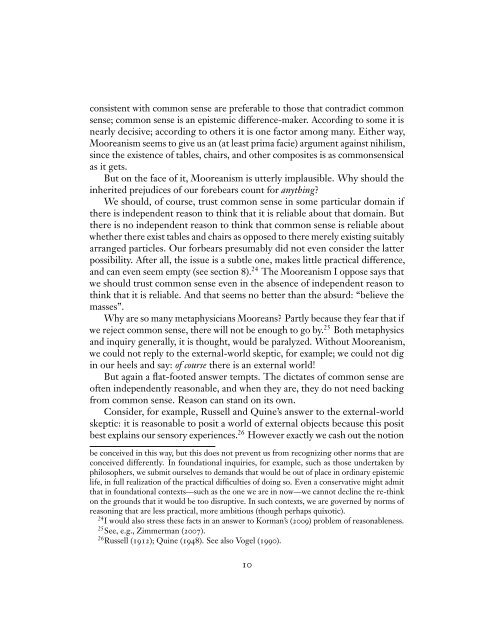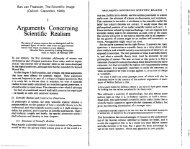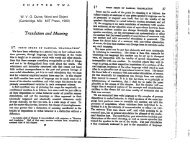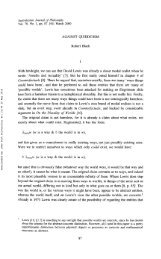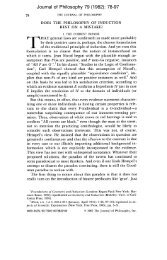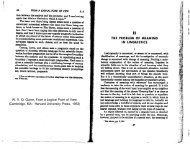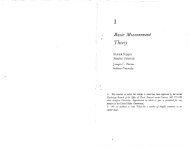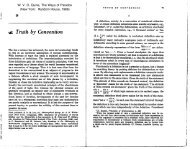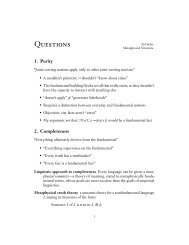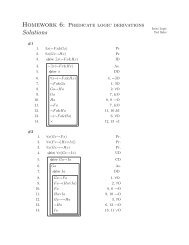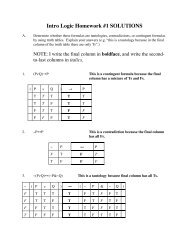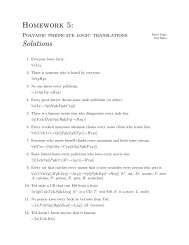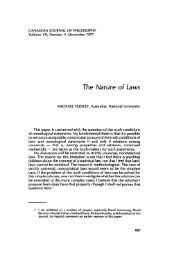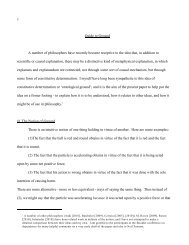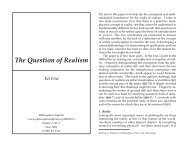Against Parthood∗ - Ted Sider
Against Parthood∗ - Ted Sider
Against Parthood∗ - Ted Sider
Create successful ePaper yourself
Turn your PDF publications into a flip-book with our unique Google optimized e-Paper software.
consistent with common sense are preferable to those that contradict common<br />
sense; common sense is an epistemic difference-maker. According to some it is<br />
nearly decisive; according to others it is one factor among many. Either way,<br />
Mooreanism seems to give us an (at least prima facie) argument against nihilism,<br />
since the existence of tables, chairs, and other composites is as commonsensical<br />
as it gets.<br />
But on the face of it, Mooreanism is utterly implausible. Why should the<br />
inherited prejudices of our forebears count for anything?<br />
We should, of course, trust common sense in some particular domain if<br />
there is independent reason to think that it is reliable about that domain. But<br />
there is no independent reason to think that common sense is reliable about<br />
whether there exist tables and chairs as opposed to there merely existing suitably<br />
arranged particles. Our forbears presumably did not even consider the latter<br />
possibility. After all, the issue is a subtle one, makes little practical difference,<br />
and can even seem empty (see section 8). 24 The Mooreanism I oppose says that<br />
we should trust common sense even in the absence of independent reason to<br />
think that it is reliable. And that seems no better than the absurd: “believe the<br />
masses”.<br />
Why are so many metaphysicians Mooreans? Partly because they fear that if<br />
we reject common sense, there will not be enough to go by. 25 Both metaphysics<br />
and inquiry generally, it is thought, would be paralyzed. Without Mooreanism,<br />
we could not reply to the external-world skeptic, for example; we could not dig<br />
in our heels and say: of course there is an external world!<br />
But again a flat-footed answer tempts. The dictates of common sense are<br />
often independently reasonable, and when they are, they do not need backing<br />
from common sense. Reason can stand on its own.<br />
Consider, for example, Russell and Quine’s answer to the external-world<br />
skeptic: it is reasonable to posit a world of external objects because this posit<br />
best explains our sensory experiences. 26 However exactly we cash out the notion<br />
be conceived in this way, but this does not prevent us from recognizing other norms that are<br />
conceived differently. In foundational inquiries, for example, such as those undertaken by<br />
philosophers, we submit ourselves to demands that would be out of place in ordinary epistemic<br />
life, in full realization of the practical difficulties of doing so. Even a conservative might admit<br />
that in foundational contexts—such as the one we are in now—we cannot decline the re-think<br />
on the grounds that it would be too disruptive. In such contexts, we are governed by norms of<br />
reasoning that are less practical, more ambitious (though perhaps quixotic).<br />
24 I would also stress these facts in an answer to Korman’s (2009) problem of reasonableness.<br />
25 See, e.g., Zimmerman (2007).<br />
26 Russell (1912); Quine (1948). See also Vogel (1990).<br />
10


